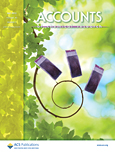
ACCOUNTS OF CHEMICAL RESEARCH
Scope & Guideline
Bridging Disciplines: Where Chemistry Meets Medicine
Introduction
Aims and Scopes
- Catalysis and Reaction Mechanisms:
A significant focus is on catalytic processes, exploring novel catalysts, reaction mechanisms, and methodologies that enhance reaction efficiency and selectivity. This includes studies on metal-catalyzed reactions, organocatalysis, and enzymatic processes. - Materials Chemistry:
The journal covers the design and synthesis of advanced materials, particularly nanomaterials, metal-organic frameworks (MOFs), and polymeric systems, emphasizing their structural and functional properties for applications in energy storage, catalysis, and biomedicine. - Chemical Biology and Biochemistry:
Research in this area includes the exploration of biomolecular interactions, enzyme mechanisms, and the development of therapeutic agents, highlighting the integration of chemical principles with biological systems. - Quantum Chemistry and Theoretical Approaches:
The journal publishes studies that utilize computational methods and quantum chemistry to predict and analyze chemical behavior, reactivity, and properties of molecules, which aids in the rational design of new materials and catalysts. - Sustainable Chemistry and Green Chemistry:
There is a growing emphasis on sustainable practices in chemistry, including the development of eco-friendly processes, renewable feedstocks, and materials that minimize environmental impact. - Interfacial and Surface Chemistry:
The journal investigates the chemistry at interfaces, including adsorption phenomena, surface modifications, and the role of surface chemistry in catalysis and sensor development.
Trending and Emerging
- Electrocatalysis and Energy Conversion:
Research on electrocatalytic processes for energy conversion, particularly CO2 reduction and hydrogen evolution, has gained significant traction, reflecting the global push towards sustainable energy solutions. - Nanomaterials and Nanoengineering:
There is an increasing focus on the design and application of nanomaterials, including their role in catalysis, drug delivery, and electronic devices, showcasing the importance of nanoscale phenomena in modern chemistry. - Biomimetic and Bioinspired Chemistry:
Studies that draw inspiration from biological systems to design new materials and processes are on the rise, emphasizing the intersection of chemistry and biology in solving complex challenges. - Machine Learning and Computational Methods:
The integration of machine learning and advanced computational techniques in chemical research is rapidly emerging, enhancing predictive capabilities and accelerating the discovery of new materials and catalysts. - Sustainable and Green Chemistry Practices:
A marked increase in research dedicated to sustainable chemistry practices, including waste reduction, renewable resources, and environmentally friendly processes, reflects a growing commitment to addressing environmental challenges.
Declining or Waning
- Classical Organic Synthesis:
There appears to be a waning interest in traditional organic synthesis methodologies, particularly those that do not incorporate modern techniques or innovative approaches, as research shifts towards more efficient and sustainable methods. - Inorganic Chemistry in Isolation:
Research focused solely on inorganic chemistry, particularly studies that do not integrate with materials science or catalysis, has seen a decline as interdisciplinary approaches become more prevalent. - Static Spectroscopy Techniques:
The emphasis on static spectroscopy methods has diminished in favor of dynamic and time-resolved techniques that provide more insight into reaction mechanisms and molecular dynamics. - Traditional Analytical Chemistry:
There is a noticeable reduction in publications centered on classical analytical chemistry methods without a strong connection to new materials or technologies, reflecting a shift towards more innovative analytical approaches.
Similar Journals
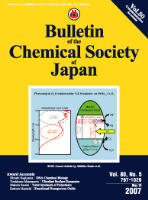
BULLETIN OF THE CHEMICAL SOCIETY OF JAPAN
Empowering Discoveries: Your Gateway to Chemical InsightsBULLETIN OF THE CHEMICAL SOCIETY OF JAPAN, published by the esteemed Chemical Society of Japan, serves as a pivotal platform for the dissemination of cutting-edge research in the multifaceted field of chemistry. With an ISSN of 0009-2673 and an E-ISSN of 1348-0634, this journal has been integral in fostering the growth of chemical sciences globally since its inception in 1965. The journal holds an impressive Q2 ranking in the Chemistry (miscellaneous) category, indicating its relevance and influence within the academic community, as reflected by its Scopus rank of #104/408, placing it in the 74th percentile. Although it is not an open-access journal, its rich content, which spans a wide range of topics in general chemistry, remains highly valued by researchers, professionals, and students alike, affirming its crucial role in advancing both theoretical knowledge and practical applications in chemistry. As it converges towards 2024, the bulletin continues to uphold its commitment to excellence in scientific communication and research dissemination in Japan and beyond.
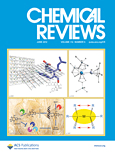
CHEMICAL REVIEWS
Exploring the Depths of Chemical Understanding.Chemical Reviews, published by the American Chemical Society, is a leading journal in the field of chemistry, renowned for its comprehensive and authoritative reviews on a wide range of chemical topics. With its ISSN 0009-2665 and E-ISSN 1520-6890, this prestigious journal has maintained a remarkable trajectory since its inception in 1924, continuously contributing to advancements in the chemical sciences. As a Q1 journal in the Chemistry (miscellaneous) category, it stands at the forefront of research, boasting an impressive Scopus rank of #1 out of 408 in the field of General Chemistry, positioning it within the top 1% of the field. Chemical Reviews offers invaluable insights and serves as a critical resource for researchers, professionals, and students alike, facilitating knowledge exchange and fostering innovation in chemistry. While currently not open access, it remains a vital component of the scientific community, gathering an extensive readership base eager for the latest developments, methodologies, and theoretical frameworks in this dynamic discipline.
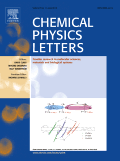
CHEMICAL PHYSICS LETTERS
Advancing the Frontiers of Chemical PhysicsCHEMICAL PHYSICS LETTERS, published by Elsevier, is a prestigious journal that has been at the forefront of advancing knowledge in the fields of physical and theoretical chemistry and physics since its inception in 1967. With an impressive impact factor reflective of its high-quality research output, this journal holds Q2 quartile rankings in both the Physical and Theoretical Chemistry and Physics and Astronomy categories for 2023. It is recognized as a key platform for disseminating groundbreaking findings, with Scopus rankings placing it within the top 76th and 66th percentiles in its respective categories. Researchers and professionals benefit from its insightful contributions and rigorous peer-review process, making it an essential resource for those engaged in cutting-edge chemical physics studies. Although the journal is not open access, it remains accessible through various institutional subscriptions, ensuring that a wide audience can explore its wealth of knowledge. Located in Amsterdam, Netherlands, the journal continues to drive innovation and collaboration across diverse scientific disciplines.

Reactions
Empowering Researchers with Open Access InsightsReactions is a dynamic open-access journal published by MDPI, dedicated to the advancement of research in the fields of Chemical Engineering and Chemistry. Launched in 2020, the journal aims to provide a platform for scientists and researchers to share their findings and innovations, facilitating the synthesis and dissemination of knowledge within the global academic community. With an impact factor that reflects its growing influence, Reactions ranks 47th in the Chemical Engineering category and 72nd in Chemistry on Scopus, placing it within the vibrant landscape of contemporary chemical research. Housed in the picturesque city of Basel, Switzerland, the journal is committed to open access, ensuring that its high-quality content is readily available to all. This commitment not only enhances visibility but also fosters collaboration among researchers, professionals, and students striving to push the boundaries of chemical sciences. As we look towards 2024 and beyond, Reactions continues to encourage submissions that explore groundbreaking methodologies, innovative applications, and transformative theoretical frameworks in chemistry and chemical engineering.
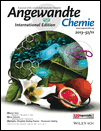
ANGEWANDTE CHEMIE-INTERNATIONAL EDITION
Cutting-edge Insights into Catalysis and ChemistryANGEWANDTE CHEMIE-INTERNATIONAL EDITION, published by WILEY-V C H VERLAG GMBH, stands as a leading journal in the fields of Chemistry and Catalysis, holding a prestigious position with a Q1 ranking in both categories as of 2023. With an ISSN of 1433-7851 and an E-ISSN of 1521-3773, this esteemed publication has been an invaluable resource for the global scientific community since its inception in 1962. The journal's impact is further underscored by its remarkable Scopus rankings, where it occupies the 13th place among 408 journals in General Chemistry and the 4th place among 68 in Chemical Engineering - Catalysis, marking it in the 96th and 94th percentiles, respectively. Although it does not offer Open Access, ANEWANDTE CHEMIE-INTERNATIONAL EDITION remains essential for researchers, professionals, and students seeking to stay abreast of cutting-edge developments and innovations in chemical sciences. Its comprehensive scope and rigorous peer-review process ensure that only the highest quality research finds its way to publication, contributing significantly to the advancement of chemistry worldwide.
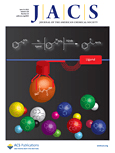
Journal of the American Chemical Society
Fostering Excellence in Chemistry for Over a CenturyJournal of the American Chemical Society (JACS), published by the American Chemical Society, stands as a pivotal publication in the field of chemistry, facilitating the dissemination of significant research findings since its inception in 1879. With an impressive impact factor and esteemed rankings placing it in the Q1 quartile across various categories—including Biochemistry, Catalysis, and Colloid and Surface Chemistry—JACS continues to serve as a vital resource for scientists, professionals, and students alike. Researchers choose JACS for its rigorous peer-review process, ensuring high-quality content that shapes the landscape of modern chemistry. The journal's extensive scope encompasses pivotal advancements and innovative methodologies, reflecting the evolving dynamics of chemical research. With access options being traditional subscription-based, it remains crucial for institutions and individuals to engage with its latest issues to stay at the forefront of chemical science advancement.
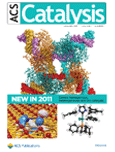
ACS Catalysis
Empowering Research in the Heart of CatalysisACS Catalysis, published by the American Chemical Society, stands as a premier journal in the field of catalysis, offering a vital platform for researchers, professionals, and students focused on advancing the science of catalysis and its applications. With an impressive impact factor placing it in the Q1 category for both Catalysis and Chemistry (miscellaneous), this journal has established itself as a leading source of high-quality research findings, currently ranking #21 out of 408 in General Chemistry and #9 out of 68 in Catalysis according to Scopus. Since its inception in 2011, ACS Catalysis has aimed to publish innovative research that addresses the critical challenges in catalytic processes, advancing our understanding of both fundamental and applied aspects of catalysis. With a commitment to promoting open scientific discourse, it serves a vital role for those interested in the latest methodologies, discoveries, and trends in this essential discipline. Based in Washington, DC, ACS Catalysis continues to uphold the highest standards of scholarship and collaboration within the vibrant community of chemists and engineers worldwide.

CCS Chemistry
Advancing Chemistry Through Open Access InnovationCCS Chemistry, published by the esteemed Chinese Chemical Society, is a leading open-access journal dedicated to advancing the field of chemistry. Since its inception in 2019, the journal has rapidly gained recognition, achieving a remarkable impact factor that places it in the prestigious Q1 category in Chemistry (Miscellaneous) as of 2023. With a Scopus ranking of #41 out of 408 in General Chemistry, CCS Chemistry represents the top 10th percentile in its category, reflecting its commitment to high-quality research and innovation. The journal serves as a vital platform for researchers and professionals to share their findings, showcase cutting-edge methodologies, and engage with the latest developments in various chemistry subfields. Accessible to a global audience, CCS Chemistry ensures that groundbreaking research is available without barriers, making it an indispensable resource for students and academics aiming to stay at the forefront of chemical sciences. For further details, submissions, and access to published articles, please visit the journal's website.
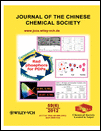
JOURNAL OF THE CHINESE CHEMICAL SOCIETY
Connecting Researchers with Pioneering DiscoveriesJOURNAL OF THE CHINESE CHEMICAL SOCIETY, published by WILEY-V C H VERLAG GMBH, is a vital resource in the field of chemistry, focusing on a broad array of topics pertinent to general chemistry and its advancing sub-disciplines. Established in 1954 and running through 2024, this journal serves as a significant platform for the dissemination of high-quality research, showcasing innovative findings and developments within the chemical sciences. With its Q3 category ranking and positioning at Rank #203 in General Chemistry per Scopus, it reflects the journal's commitment to research excellence and impact. While not an open-access publication, it ensures accessibility to a global audience, making it an essential tool for researchers, professionals, and students alike seeking to stay informed and engaged in the evolving landscape of chemistry.
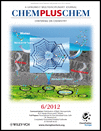
ChemPlusChem
Pioneering Interdisciplinary Research in ChemistryChemPlusChem is a premier journal published by WILEY-V C H VERLAG GMBH, dedicated to the vibrant field of chemistry. With an ISSN of 2192-6506 and an impressive Q1 ranking in Scopus's 2023 category for miscellaneous chemistry, this journal serves as a significant platform for the dissemination of high-quality research and innovative findings. Since its inception in 2012, ChemPlusChem has fostered interdisciplinary collaborations, encapsulating a wide array of topics within chemistry that facilitate scientific advancement and education. The journal features a robust open access system, enabling extensive visibility for authors while providing easy-to-access resources for researchers, professionals, and students globally. Located in Weinheim, Germany, ChemPlusChem reflects international standards and ambitions, striving to enrich the global scientific community through rigorous research and engaging scientific discourse.